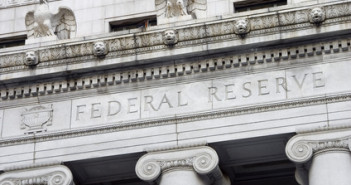The Fed chair nominee, Jerome Powell’s confirmation hearings began last week. Powell, currently the governor of the FOMC said that he preferred the current Fed’s policy of normalizing interest rates.
Although Powell did not explicitly commit on the December rate hike, the potential chairman of the Federal Reserve hinted that the odds for rate hikes were growing. Powell also stated that the markets can expect to see a continuation of the current Fed’s policies after Janet Yellen’s term ends in February of next year.
Speaking to the Senate, Powell maintained that the likelihood of a rate hike at the next monetary policy meeting was high, also stating that the economic conditions were supportive of a rate hike.
Besides speaking about the December rate hike, the Senate hearing gave Powell a chance to outline his vision of the future course of monetary policy, while also assuring the senators about maintaining the status quo. When quizzed about the tax reform plans, Powell did not offer much information. President Trump’s proposed tax reform plans are currently being debated.
Powell simply said that he was not an expert regarding the tax proposal. Investors believe that the tax reform plans could potentially boost inflation higher which has remained flat.
During the hearing, the senators commended the outgoing Fed Chair, Janet Yellen, noting that she did an “excellent job” as she presided over one of the longest economic expansions following the 2008 global financial crisis.
Senator Sherrod Brown said that Yellen’s strong and steady course of monetary policy following the financial crisis prevented the Fed from making the same mistakes. The Federal Reserve has seen interest rates rise from historic lows of 0.25% to 1.25%.
Interest rates in the U.S. remained at levels near zero for almost seven years.
Many economists are hopeful that rate hikes will continue, with approximately three to four rate hikes expected next year. At the same time, the Fed’s balance sheet normalization program is also expected to pick up the pace.
The Fed chair nominee did not deviate much from the usual script. It was stated that it wasn’t the Fed’s policy to commit to votes ahead of the FOMC meeting coming up in a few weeks time.
Powell also briefly touched upon another topic of falling behind the curve. The U.S. economy has managed to strengthen strongly maintaining a steady pace of economic expansion, while at the same time, enjoying tighter labor market conditions.
Analysts said that Powell did not offer much for the markets and that it contained few signs of bringing new ideas. Some suggested that there is scope for a monetary policy mistake in the years ahead.
The U.S. stock market reaction to Powell’s comments was muted, although equities rose slightly during his speech. Powell said that the basis for the Fed’s rate hikes is due to the economy performing well and could sustain further rate hikes.
Any delays, according to Powell, would result in the economy overheating.
So far, the U.S. economic indicators remain supportive of a rate hike. However, the markets are not quite convinced yet about the Fed’s proposed rate hike this December. Inflation remains a major concern for policy makers. But the recent uptick in crude oil prices could mean a modest increase in consumer prices in the near future.
Wage growth in the U.S. has also broadly remained flat. But officials expect to see a pickup in wages as the labor market continues to tighten. This Friday, the November payrolls report will be released. This will be one of the major reports ahead of the rate hike that is due to come later in the month.
